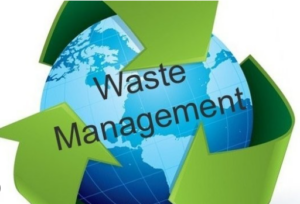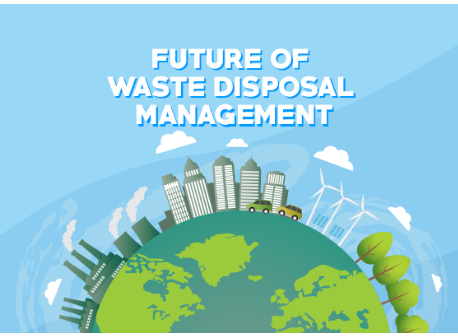In a world grappling with environmental challenges, the future of garbage disposal holds immense promise. Gone are the days when waste management simply meant landfills and incineration. Today, a plethora of cutting-edge technologies and sustainable practices are reshaping how we handle our waste, ensuring a cleaner and greener tomorrow.
To begin with, one of the most significant advancements in garbage disposal is the emergence of smart bins. These intelligent receptacles utilize sensors and IoT technology to optimize waste collection. Equipped with real-time monitoring, smart bins alert waste management authorities when they reach their capacity, eliminating unnecessary trips and reducing carbon emissions. Moreover, these bins promote recycling by providing information on what can be recycled and where to dispose of it. Consequently, they contribute to more efficient waste segregation, a vital step toward reducing the burden on landfills.
Smart Bins: Redefining Waste Collection
One of the most significant advancements in garbage disposal is the emergence of smart bins. These intelligent receptacles utilize sensors and IoT technology to optimize waste collection, ushering in a new era of efficiency and sustainability.
Real-time Monitoring for Efficient Waste Collection
Equipped with real-time monitoring capabilities, smart bins alert waste management authorities when they reach their capacity, eliminating unnecessary trips and reducing carbon emissions. This innovation not only saves time and resources but also contributes to more effective waste segregation, a crucial step toward reducing the strain on landfills.
Robotic Revolution in Recycling
A pivotal aspect of the future of garbage disposal is the shift towards sustainable recycling practices. Traditional recycling methods often face challenges due to contamination and inefficient sorting. However, breakthroughs in robotics and artificial intelligence are revolutionizing recycling facilities.
Precision Sorting and Increased Efficiency
Robots can now identify and sort recyclable materials with astonishing precision, significantly enhancing the overall efficiency of recycling processes. This not only reduces the need for manual labor but also increases the purity of recycled materials, making them more valuable and marketable.

Embracing the Circular Economy
The future of garbage disposal is closely intertwined with the circular economy concept, an approach that emphasizes minimizing waste generation and maximizing resource utilization. This paradigm shift is transforming how products are designed, consumed, and disposed of.
Sustainable Product Design
In the circular economy, businesses design products with durability and recyclability in mind, thus reducing the burden on disposal systems. This approach views waste as a valuable resource, encouraging both businesses and consumers to adopt more responsible consumption habits.
Combating Single-Use Plastics
Transitioning to a circular economy also involves rethinking our single-use plastics addiction. Governments and industries worldwide are implementing bans on single-use plastics, driving innovation in alternative materials and reducing the demand for traditional plastics.
Waste-to-Energy Solutions
The future of garbage disposal includes a greater emphasis on waste-to-energy technologies as the world seeks to reduce its reliance on fossil fuels.
Converting Waste into Renewable Energy
Waste-to-energy facilities utilize advanced combustion and gasification processes to generate electricity and heat from municipal solid waste. This innovative approach not only reduces the volume of waste destined for landfills but also contributes to a cleaner energy future.
Conclusion
In conclusion, the future of garbage disposal is bright and promising. From the implementation of smart bins to the adoption of sustainable recycling practices, and the embrace of the circular economy, our approach to waste management is evolving rapidly. By combatting single-use plastics and harnessing waste-to-energy technologies, we are not only reducing the burden on landfills but also paving the way for a cleaner, more sustainable planet. It’s time to embrace these innovations and work together to ensure a greener future for generations to come.



